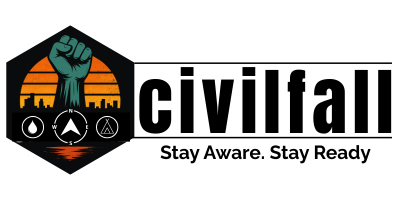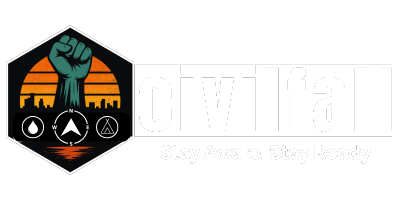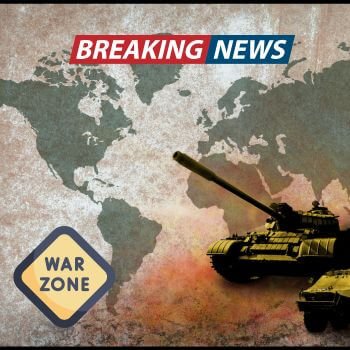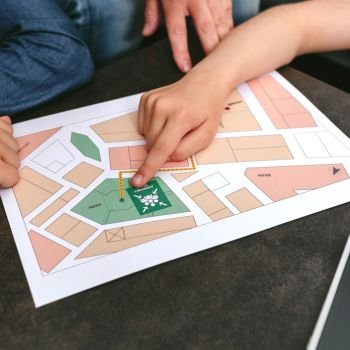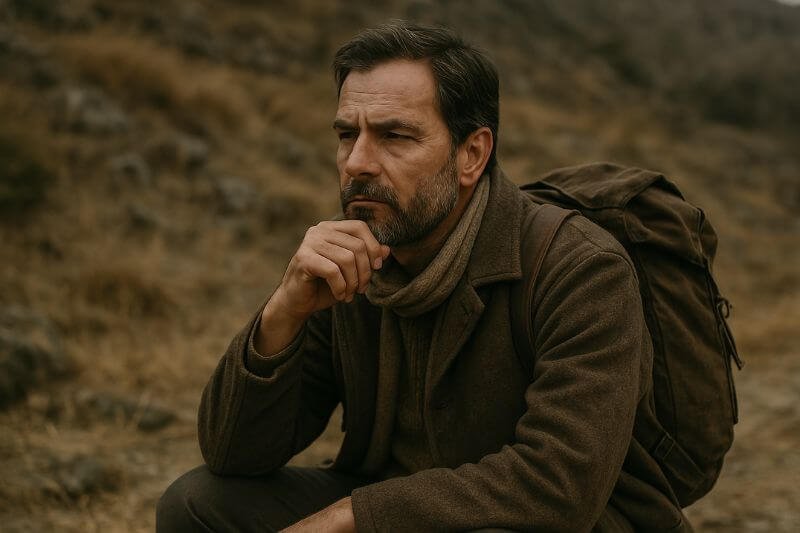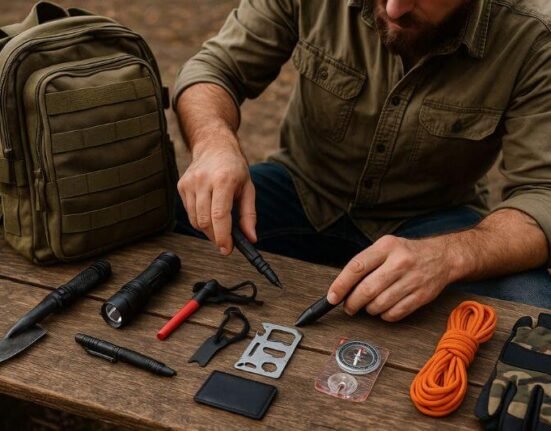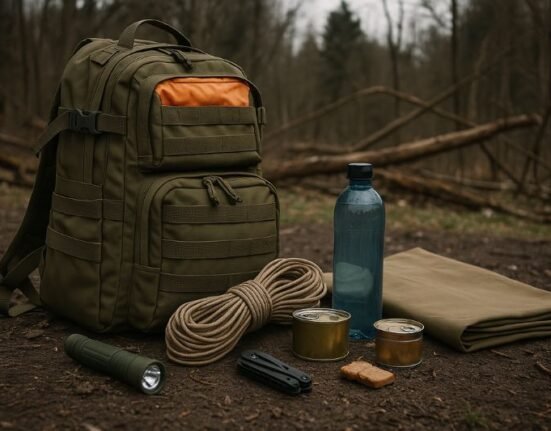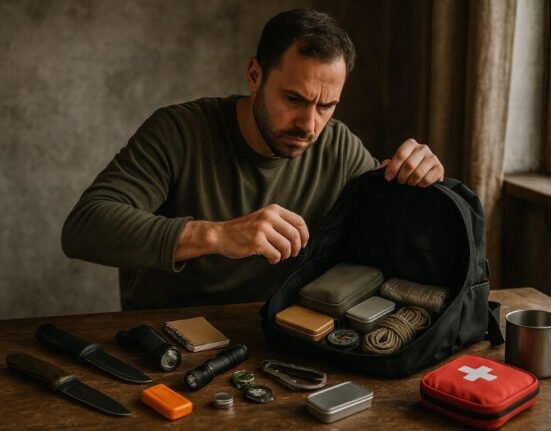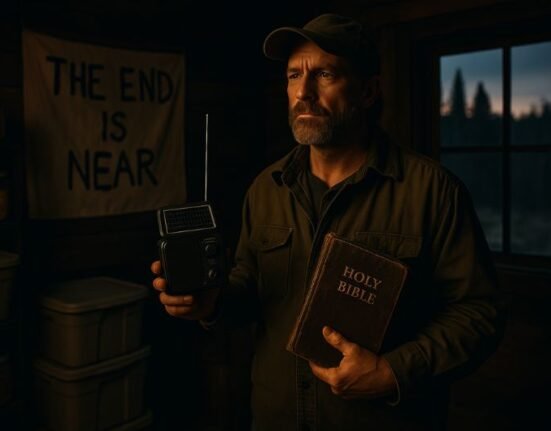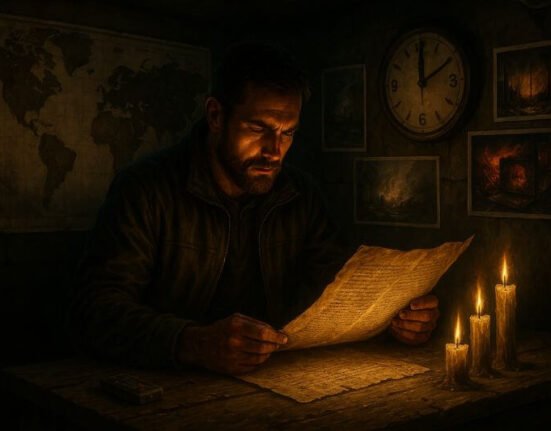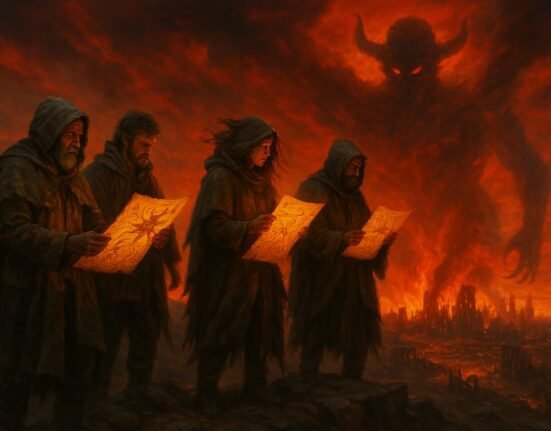In any survival situation, your greatest asset isn’t your gear—it’s your mindset. And at the core of that mindset lies a set of unspoken principles, values, and ethical boundaries. This is what we call survival philosophy—the deeper framework that guides how you act, think, and make decisions when your life is on the line.
While most prepping guides focus on tools and techniques, survival philosophy forces us to confront the big questions: What are we willing to do to survive? What lines won’t we cross? And perhaps most importantly—how do we stay human in inhuman circumstances?
Survival Isn’t Just Physical—It’s Moral
During a crisis, it’s not just your body that’s tested—your ethics are too. Imagine the scenario: resources are limited, your loved ones are at risk, and every decision could mean life or death. Do you help others or focus solely on your own survival? Do you loot to feed your family? These are moral dilemmas, and they are central to the study of survival philosophy.
Philosopher Immanuel Kant once said: “Act only according to that maxim whereby you can, at the same time, will that it should become a universal law.” In survival contexts, this means questioning whether the actions you take to survive could, or should, be taken by all. The reality? Most survival decisions don’t fit cleanly into moral frameworks—and that’s precisely why survival philosophy matters.
Lessons from Philosophers and Survivors
Throughout history, great thinkers have explored the human will to survive:
- Viktor Frankl, a Holocaust survivor and psychiatrist, wrote in Man’s Search for Meaning that survival depends not just on food or shelter, but on meaning. His survival philosophy emphasized purpose as the core driver of resilience.
- Albert Camus, through his notion of the absurd, challenged us to face a chaotic world without clear answers. In disasters, survival often means acting without guarantees, choosing despite uncertainty.
- Seneca, the Stoic, taught that we should “prepare in our minds for every possible event.” To him, readiness was as much spiritual as physical—an inner calm born of accepting that we control our reactions more than our circumstances.
These thinkers weren’t preppers in the modern sense—but they laid the groundwork for understanding what survival truly demands of us.
The Ethics of Life and Death Decisions
Let’s face it: in a real crisis, ethical lines blur. You might face choices like:
| Scenario | Ethical Dilemma |
|---|---|
| A family of four begs for food you’ve rationed for a week | Do you share and risk starving yourself? |
| You find a child lost and alone | Do you protect them, even if it slows you down? |
| You see someone stealing from a collapsed store | Do you intervene, or do the same? |
Survival philosophy doesn’t offer easy answers—but it demands we ask the questions.
As John Stuart Mill argued, the best actions produce the greatest good for the greatest number. But is that still true when “the number” includes your family versus strangers? The challenge isn’t just to survive—but to do so without becoming someone you’ll hate when it’s over.
The Importance of Pre-Crisis Reflection
The worst time to define your values is during the crisis. By reflecting on survival ethics before disaster strikes, you reduce decision fatigue and avoid moral panic. It’s why military and rescue personnel undergo ethical training—because instinctive actions, when unexamined, can lead to tragic results.
🔹 Practical Exercise
Ask yourself today:
- Would I kill to protect my family?
- Would I steal medicine to save someone I love?
- Would I abandon a stranger to save time?
Write down your answers. Then revisit them after reading more philosophy. You might be surprised how your views evolve.
Philosophical Frameworks That Shape Survival Decisions
When disaster strikes, your survival isn’t just influenced by your training—it’s shaped by your moral compass. And that compass is built from philosophies you may not even know you follow. Let’s break down the most influential frameworks in survival philosophy—and how they apply when everything’s on the line.
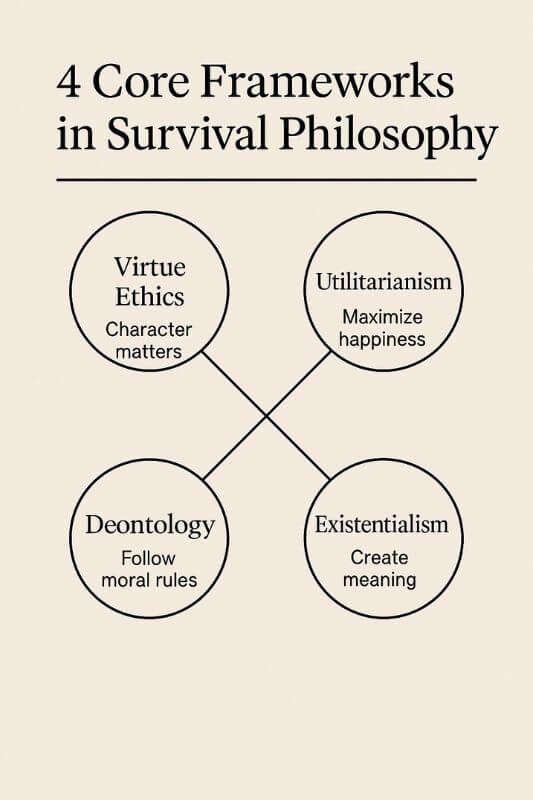
Stoicism: Control What You Can, Endure What You Can’t
At the heart of Stoic thinking is the belief that external events are beyond our control—but our reactions are not.
“We suffer more often in imagination than in reality.” — Seneca
In survival situations, this mindset is a lifesaver. When power grids fail, roads are blocked, or help isn’t coming, Stoicism trains you to accept these facts without panic. The Stoic prepares not by building walls, but by strengthening the soul.
How Stoicism applies to survival:
- Prepares you emotionally for loss and chaos
- Encourages rational decision-making in crisis
- Teaches detachment from outcomes you can’t control
🧭 Action tip: Practice Stoic reflection daily—ask yourself what you’d do if your comforts vanished tomorrow.
Utilitarianism: The Greatest Good in the Harshest Times
Coined by Jeremy Bentham and refined by John Stuart Mill, utilitarianism promotes actions that produce the greatest good for the greatest number.
But survival scenarios complicate this logic.
- What if saving more people means letting your loved one die?
- Is stealing justified if it helps more people survive?
- When is sacrifice noble—and when is it betrayal?
Survival philosophy demands that we wrestle with these utilitarian questions. Sometimes, what is “right” feels horrifying. But ignoring these questions creates moral chaos.
| Situation | Utilitarian Dilemma |
|---|---|
| Five strangers need water. You have only enough for three. | Who lives? Who dies? |
| Your escape vehicle has four seats. A fifth survivor pleads to come. | Overload and risk everyone, or leave someone behind? |
Utilitarianism helps make tough calls—but it also reminds us how painful leadership becomes when ethics compete with empathy.
Virtue Ethics: Character Over Calculation
From Aristotle to modern humanists, virtue ethics focuses on who you are, not just what you do.
In a survival context, this means cultivating resilience, courage, honesty, and compassion—not as tactics, but as habits. You don’t become a virtuous survivor in a day. You become one through daily moral training.
“We are what we repeatedly do. Excellence, then, is not an act, but a habit.” — Aristotle
A survivor driven by virtue:
- Helps others when possible, without martyrdom
- Maintains integrity, even when no one is watching
- Stays humble, knowing luck often trumps skill
🧭 Action tip: List 5 virtues you want to embody in crisis. Train them now—don’t wait for catastrophe.
Camus and the Absurd: Surviving Without Answers
Albert Camus argued that the universe is indifferent, and meaning must be made, not found. In survival, that translates to this brutal truth:
There may be no reason you survived.
No justice. No karma. Just chaos.
“In the midst of winter, I found there was, within me, an invincible summer.” — Camus
When disasters strike at random, survival philosophy inspired by Camus urges you to:
- Accept life’s absurdity without surrendering to despair
- Find meaning through struggle, not after it
- Reject nihilism by building purpose—even if it’s just helping one person
This mindset protects your humanity in a world that no longer makes sense.
A Functional Model of Survival Ethics
Here’s a simple model survivors can reflect on, combining these frameworks:
| Step | Guiding Question | Philosophical Base |
|---|---|---|
| 1. What are the facts? | What is real and unchangeable? | Stoicism |
| 2. What helps the most people? | What creates the most benefit? | Utilitarianism |
| 3. What aligns with who I want to be? | What reflects my character? | Virtue Ethics |
| 4. What can I live with tomorrow? | What gives me peace of mind? | Camus/Existentialism |
This four-question loop is not a formula—it’s a reflection tool. In chaos, it won’t give you the “right” answer, but it helps you make a conscious, grounded decision.
Applying Survival Philosophy to Real-World Preparedness
It’s one thing to study survival philosophy in theory. It’s another to live it—to use it as the backbone of your daily prep, your training routines, and your emergency plans. Because when the moment comes, your actions will flow not from your gear, but from your guiding values.
Let’s explore how to turn survival philosophy into a tool for resilience—physical, psychological, and moral.
Building Moral Readiness: Training the Ethical Reflex
Just like muscle memory helps you draw a weapon under stress, ethical reflexes guide your decisions under moral pressure. To build them:
- Run scenario drills with moral complexity
Don’t just ask “Do I have the gear?” Ask “Would I save the stranger or protect the group?” - Create a “Moral Code of Survival”
A one-page guide stating your ethical red lines. Revisit it every few months. - Practice leadership under tension
Even in group hikes or simulated bug-out weekends, test your values. Who do you help first? How do you handle conflict?
🧠 Remember: character under pressure is trained, not improvised.
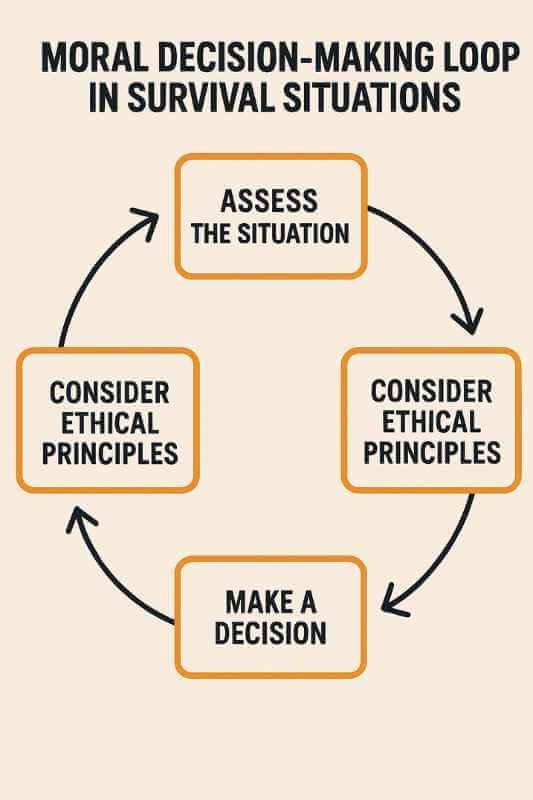
Designing Your Preparedness Through an Ethical Lens
Most preppers organize gear into categories: food, water, defense, communication. But what if your ethics guided your readiness?
Here’s how survival philosophy reshapes your gear and plans:
| Ethical Value | Preparedness Action |
|---|---|
| Compassion | Pack extra food and water for others |
| Responsibility | Keep detailed contingency plans |
| Autonomy | Learn off-grid medical and repair skills |
| Non-aggression | Train in de-escalation before firearms |
| Justice | Teach others, don’t just hoard knowledge |
In short: Don’t just prepare to survive—prepare to lead, help, and rebuild.
Resilience Is Moral, Not Just Mental
Psychologists speak often of resilience as mental toughness. But survival philosophy shows us: resilience is also moral.
- It’s the ability to recover with your integrity intact.
- It’s making peace with tough choices—without becoming hardened or cruel.
- It’s choosing meaning over nihilism, even when the world burns.
“Those who have a ‘why’ to live, can bear almost any ‘how.’” — Viktor Frankl
You don’t need to be perfect. But you do need to reflect. Otherwise, survival turns into savagery—and that’s not survival at all. That’s just delayed collapse.
Bringing It All Together: Survival Philosophy as a Compass
Your knife may rust. Your map may tear. But your philosophy—your inner compass—can remain unbroken.
Ask yourself today:
- Who do I want to be in a crisis?
- What choices will I regret—or be proud of?
- Can I prepare in a way that protects both my body and my soul?
If your answers are unclear, start there. Read. Reflect. Write. Discuss. Survival philosophy is not a luxury—it’s the core of long-term survival and post-collapse rebirth.
✅ Conclusion: Stay Human. Stay Ready.
Survival isn’t just about staying alive. It’s about staying human while doing it. That’s what survival philosophy gives us: a light in the moral darkness of catastrophe.
Gear wears out. Food runs dry. But ethics—that’s what endures.
So don’t just stock up. Level up.
Because in the end, the hardest thing to carry isn’t your pack—it’s your conscience.
❓ FAQ – Survival Philosophy in Action
Q: Is it selfish to prioritize my family over strangers in a crisis?
It’s natural—but it’s not binary. Survival philosophy encourages you to find balance. Protecting loved ones doesn’t mean abandoning all empathy. Ethical prepping plans for both.
Q: Can moral values make survival harder?
Yes—and that’s the point. True ethics challenge comfort. But acting with conscience can also preserve your mental health long after the crisis ends.
Q: Should I always follow laws in an emergency?
Not always. Laws may collapse or become unjust. Philosophy helps distinguish between legality and morality—what is lawful isn’t always what’s right.
Q: What if my beliefs change after a crisis?
They probably will. Trauma reshapes people. Survival philosophy helps you reflect, adapt, and make sense of change—without losing yourself.
Q: How can I talk about this with my group or family?
Start simple. Share this article. Host a discussion night. Ask each person: What’s one thing you wouldn’t do to survive?
Then ask: What would you do if it meant saving everyone?
